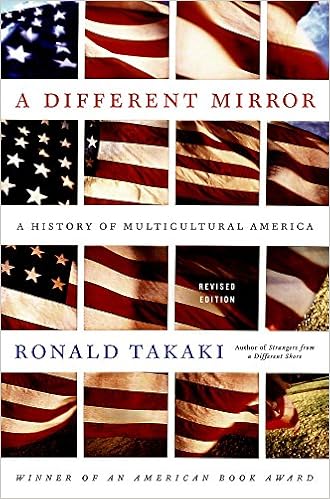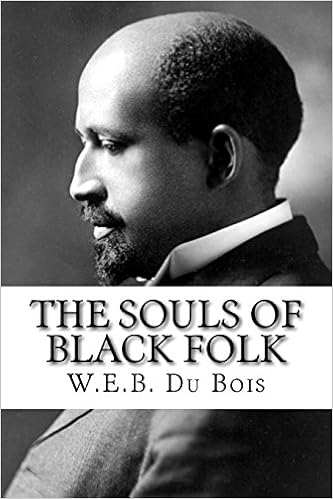Top 10 Best Ethnic Studies Books – Is There A Solution?
Equality comes in more shapes and forms. It can be a matter of money, income and finances. It could also be a matter of job opportunities or perhaps housing. But most commonly, equality these days is mostly used in references to the race. Indeed, the location, nationality and religion are often considered as well, but the ethnic profile is where equality is needed the most these days.
Ethnic studies go in more categories. If you are interested in the topic, chances are you are less likely to read scientific approaches with nothing but numbers and percentages. Instead, you want history, facts and something that is simple to understand. Whether you are part of a minority or a majority, here are some of the best ethnic studies books to change your perception of today's society.

Prosperity for All, by Tracy Branch
This book underlines a very simple and direct concept – there is a massive gap between the rich and the poor. The concept is not so obvious in the book, but it underlines the fact that people can actually secure wealth and everyone out there can enjoy a decent lifestyle without any major sacrifices.
Indeed, while in most countries, there actually is a middle class, there are many other places where no such thing exists. Furthermore, even the middle class often has limitations and may not necessarily experience the optimal level of prosperity.
Today's society is divided based on centuries of abuse. For instance, people of color are often discriminated against, whether it comes to their social status, work status or other relatable aspect of their lives. The capitalistic structure is also considered to be abusive and carnivorous, yet it persists.
This book aims to find solutions to problems affecting today’s society. It starts the conversation about real change and looks back at the negative experiences African Americans had to go through overtime. While the history has brought in numerous lessons in ethnicity, things have not changed too much lately.
The question is – how can people create an economic system within today’s system? Is it even possible? The book aims to find solutions to poverty, as well as the necessity to progress while still supporting the system. This book is not about blame or negativity, but a good start of a conversation to change things.

White Like Me, by Tim Wise
To some, this book may not necessarily raise too many bells. To others, it represents a good start for a different way to see things. It is a personal examination of how the actual race can change societies and perceptions – whether or not you are aware of it.
Racial privilege is responsible for many people’s good lives, as well as others’ bad lives. Whether it comes to racist people or not, being white is still considered a privilege in many parts of the USA. Unfortunately, this aspect does not benefit people of color, not to mention the actual society.
While society is making efforts to annihilate such things, the truth is they still persist. The perception is still there, whether you are racist or not. The phenomenon goes in all directions – from employment and justice to healthcare and education. Somehow, everyone is affected.
What most people fail to realize is the fact that racial privilege comes with incredible costs for society. The author provides some explanations that will motivate people to make a change. It is a great book for educators, activists or just people interested to find out more on the topic.
Known as one of the most open equality books out there, White Like Me shows how race still shapes today’s society in the USA. Forget about statistics – the book comes with stories that are readable and enjoyable.

A Different Mirror, by Ronald Takaki
A Different Mirror can be considered a classic among ethnic studies books and for some good reasons. The book has been initially republished a few times over the past decade and its studies and claims are still relevant in today’s society.
The book gained huge notoriety soon after it was first published. Critics from all over the world – but especially from the USA – embraced it straight away, as the book tells the story as it was in history and facts.
It all started with the New World colonization. The history is told from a foreign point of view and shows the difficulties foreigners have always had to deal with in the USA. It is not all about the country, but also about the culture – difficulties associated with Latinos, Jews, Native Americans, African Americans and Asians.
The country has an incredibly rich culture and this mosaic represents the contribution of different cultures. The latest editions of this book are even more relevant after a few revisions. For instance, the reader will also learn more about the importance of black soldiers in the union, as well as the role of Chinese Americans during the 1940s and the illegal immigration from Mexico.
Things have gone even further these days, with a new wave of Muslim refugees. It is a raw truth that lots of people seem to ignore, yet it is part of the local history. In the end, there is only one question left – what does it mean to be an American?

Horizontal Vertigo, by Juan Villoro
This book is about a different ethnic culture – it is about evolution, civilization and spirits. While it does introduce the western reader to a new culture, there are no sophisticated facts, numbers and studies in it. It is easy to read and extremely interesting in details.
From many points of view, Horizontal Vertigo is an eye opening masterpiece. It is practically a tour that describes Mexico, the Spanish speaking world and a culture that many Americans are confused about – a place that is usually associated with crime, rather than culture.
The title refers to how Mexicans have chosen to build the capital outward and not upward. The author wanders all around Mexico City and without an actual plan. However, he observes and describes. It is about people, things they do, places and what draws such powerful connections between them.
Furthermore, Juan Villoro assesses the political, social and cultural profiles of the city. The book goes back in time a little – from the first indigenous groups to the Aztec groups. The Spanish took over later on, turning this city into one of the most diversified cultural centers in the world.
The book is organized around a few different concepts, such as the local lifestyle, characters from the city, shocks around the city, crossings and celebrations. The author manages to come up with a coherent and consistent book about the spirit of place – a culture that can change some misconceptions.

Black Rednecks and White Liberals, by Thomas Sowell
This book was released in 2005. It brought back some interesting points of view that changed history, but it is just as relevant today, making it one of the best ethnic studies books out there. It goes deep into the culture of racial differences, as well as the history of this concept and what it means for today’s society.
Back in the 20th century, people from the south were considered rednecks by employers in the north, who used to do better financially. They were considered immoral, but also lazy and mostly focused on crime – only a misconception, of course.
The pattern persisted overtime, regardless of who ended up in the south. The misconception could have affected white people too, yet it was mostly aimed at people of color. More than half a century later, things have changed a little.
While the south was, indeed, less financially powerful than the north, people have moved up in class. However, some of the population is still at the same level, so the idea of rednecks is still around for those from the north.
Obviously, no one likes this label. The attempt to escape has often been hampered by white liberals who turned this culture into racial identity. Apart from considering how modern influences have changed these ideas, the book also goes deeper in history to analyze the roots of the problem.

The End of White World Supremacy, by Malcolm X
This is one of the most appreciated equality books out there. While it may not come with any comprehensive studies or facts, it comes from one of the greatest leaders around the USA – Malcolm X, who charmed everyone with his speeches during the 1960s.
Malcolm X was an icon for African Americans. He has managed to turn things around by tapping into the inner history, dignity and pride. He has developed a new level of consciousness and managed to carry others behind him as well.
From many points of view, the 1960s represented a major step forward for the American society. No one out there can claim more responsibility for it than Malcolm X. He was an icon and people still wonder where the country would go if he was not killed.
It all happened in 1965. Malcolm X was in a Harlem theater and was gunned down. He was one of the most prolific political thinkers out there. This book does not try to change your perception on racial discrimination or people of color. Instead, it motivates the reader with nothing but a few words.
Simply put, the book contains four of the most famous speeches coming from Malcolm X. The famous Chickens Come Home to Roost speech is also included, but also analyzed. Pay attention as you go through these speeches and you will see the drive and motivation behind one of the greatest leaders in the USA.

Minor Feelings, by Cathy Park Hong
This release can often be counted among the subtle ethnic studies books out there. After all, it tells a story, but the reader has to dig deeper and understand the hidden meanings behind the story. It is written in a relaxed and chilled way, so it can definitely give you some racial insights without feeling too aggressive.
All in all, the book can be described as a memoir. It is rich with cultural criticism and not in a bad manner. It also has a bunch of historical facts that underline the unconscious discrimination on race that still divides the USA.
All these things ended up mixed together in a book of so called minor feelings. The author is the daughter of Korean immigrants. She spent her childhood facing discrimination and suspicion. Shame inevitably kicked in as well.
As she grew up, she realized that all these minor feelings normally occur when the American dream is not always a dream. Instead, it can sometimes contradict the reality and people actually end up believing the racial lies they hear all the time.
The author’s personal story is used to examine racial discrimination and misconceptions in today’s society. The experience is the foundation of further studies and covers shame, depression, the struggle of a new language and the discovery of truth.

Uncomfortable Conversations with a Black Man, by Emmanuel Acho
Based on ideas, facts, opinions and history, this book is one of the best ethnic studies books out there and defines a simple principle that can apply to everything – you can never solve a problem that you are not aware of. Things change when you know you have it though.
The systemic racism that still divides the country and leads to numerous protests is a problem. Unfortunately, lots of people are not really aware of it. There are some truths out there that some people are not aware of – not because they are lied to, but simply because they are not interested in the topic.
According to the author, there is obviously a fix to this problem – a solution. It is quite obvious, but in order to get it, the reader will have to go through a few uncomfortable conversations and this is when the real story begins.
Emmanuel Acho takes on a plethora of questions that most white people are afraid to ask. They are sensitive and they are often considered taboo. If left behind, they will lead to myths and misconceptions and this is what causes today’s problems in the USA.
As uncomfortable as they are, all of these questions are well answered and explained. They cover more aspects, such as cultural diversity, appropriation, reverse racism or white privilege, among many others. It is a discussion that will open your eyes.

The Souls of Black Folk, by W. E. B. Du Bois
Released in 1996, this book might be old, but it is still relevant. It is a classic and one of the first major calls for help. It is the foundation of whatever caused black protests over the past few decades, so it hides some truths that everyone needs to be aware of – regardless of the race.
The author is one of the most famous icons associated with the black protests from the 20th century in the USA. He played multiple roles in organizing programs and developing strategies that would let the world know about black existence and discrimination.
The book can be described as a collection of essays. They first came out in 1903 and they shocked the world. The author claimed that it is beneath the overall dignity of a man to beg for some rights that actually belong to mankind.
The author also goes back in history a little and shows how some apparently good strategies developed by black leaders were actually used to push the black oppression to another level – completely wrong points of view.
As a direct consequence, these studies divided the black world into two different groups. Some of them were more conservative, while others became more radical. The influence of this book still persists today and it is highly recommended to anyone who wants to know more about civil rights, the struggle and local history.

My Beloved World, by Sonia Sotomayor
Sonia Sotomayor has become an icon in the USA. The Puerto Rican recalls childhood memories from her life in Bronx, as well as her path to reach federal benches and become appointed to the US Supreme Court.
Her childhood was not the best – an alcoholic father who died while she was still a kid. Her mother was devoted, but she was a refugee girl who got diagnosed with juvenile diabetes. She soon realized that she had to learn to live by herself.
Her inspiration? Nothing but TV role models. She became a lawyer and grew up to become even more notorious. She speaks with warmth about her life and she agrees that the USA does have infinite possibilities, but it takes hard work and persistence to overcome myths and misconceptions.
Conclusion
Bottom line, these are some of the best ethnic studies books out there. Equality books have gone in more directions and the list can easily go on, but these classics are still relevant today. The above-mentioned titles will give you some insights into more or less obvious abuses, as well as the potential solutions to such problems.
My profession is online marketing and development (10+ years experience), check my latest mobile app called Upcoming or my Chrome extensions for ChatGPT. But my real passion is reading books both fiction and non-fiction. I have several favorite authors like James Redfield or Daniel Keyes. If I read a book I always want to find the best part of it, every book has its unique value.







